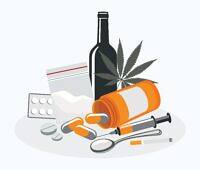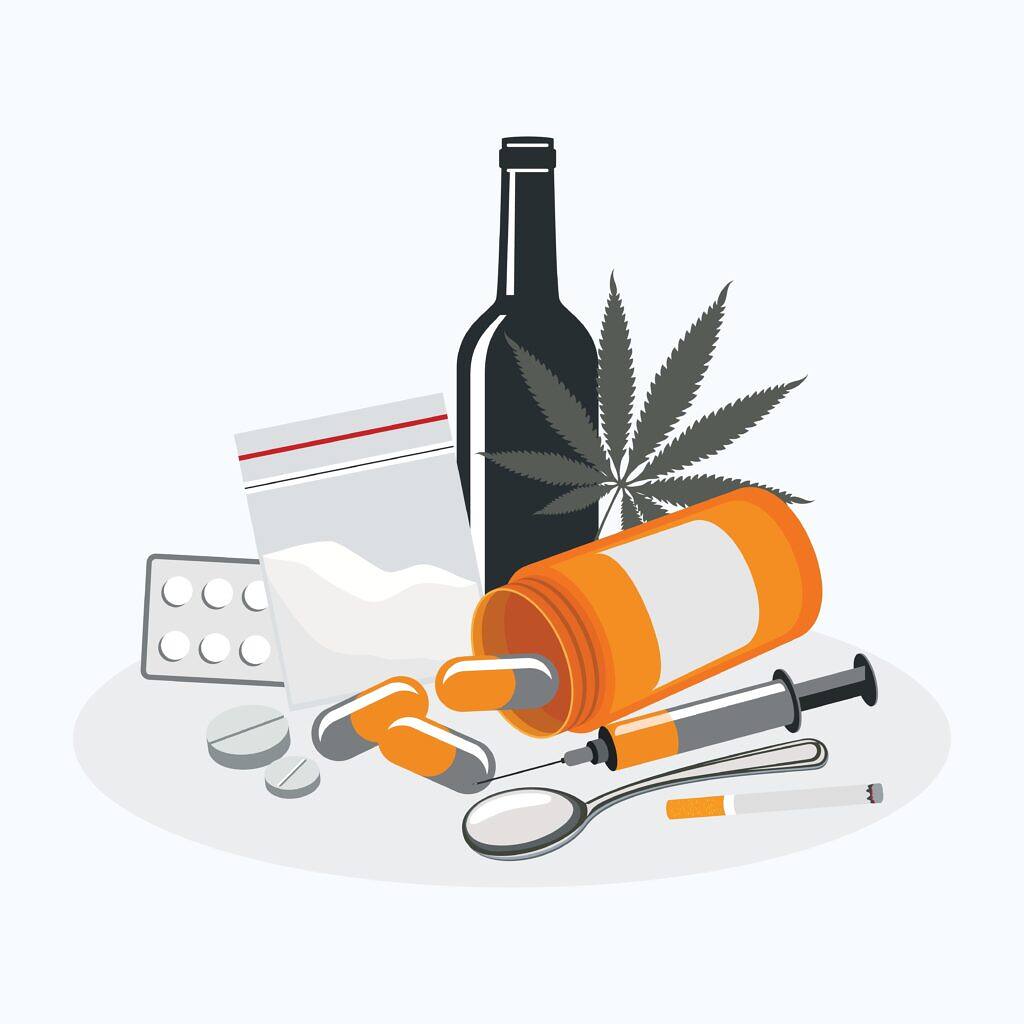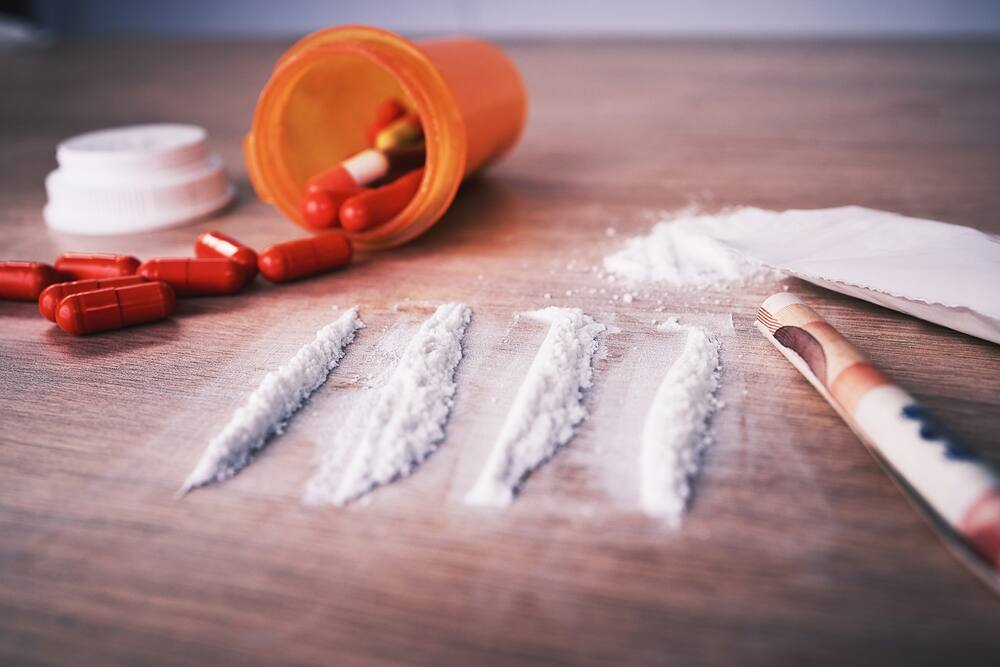
Cocaine and Antibiotics
Cocaine doesn’t interfere with most antibiotics directly on a chemical or body absorbsion level. Taking coke impacts the person taking them in a way that makes them less effective.
There are some exceptions, such as Azithromycin, which can interact with cocaine and cause oxygen levels and heart issues. For most people, though, the reduction in immunity and risky behaviour is the biggest reason to avoid cocaine and antibiotics.
People almost always take antibiotics to fight a serious infection. Cocaine can reduce immunity by changing the cells responsible and prolonging infections.
It can also cause physical damage to your mouth, nose, and lungs, which are parts of the body that are already vulnerable to infections. Alongside this, insomnia, increased metabolism and overactivity are all side effects of cocaine use that harm your immune system.

How Cocaine Impacts People Taking Antibiotics
While substances such as calcium, caffeine and alcohol cause issues for antibiotic medication, cocaine does not interfere with the medicine itself. Rather, it makes the problem, the infection, much worse and harder to fight.
Most people take antibiotics either to prevent or fight an infection. Infections treated in this way are usually either serious or unlikely to resolve on their own. Antibiotics are not normally given for infections your body can easily fight, as overusing antibiotics leads to infections that can resist the medication.
Research has shown that cocaine has a significant impact on our immune system. It suppresses cytokine interleukin-6, which controls inflammation and fights infections.
Dopamine, Cocaine and Immunity
At the heart of the reward system of cocaine is dopamine. These receptors ignite the pleasure centre of the brain and provide the motivation for taking it and becoming addicted.
Dopamine also has a profound effect on our immune system, particularly our immune cells. By disrupting our natural levels of dopamine from cocaine use, we disrupt the helping hand that dopamine provides, making recovery from infection more challenging.
Cocaine and Specific Infections
One additional factor when you are considering mixing cocaine and antibiotics is how cocaine use can lead to infections.
Research shows that people who take cocaine are more likely to have infections that need antibiotics in the first place.
Nose and Sinus Infections
Sinus, nose and skin infections are the most common issues. Cocaine is corrosive to tissue, so when people snort it thought their nose, it damages the inside of the nasal passage and sinuses.
While the destruction of the nose structure and septum is well-known in people who abuse cocaine, infections are a big risk, too. Injured noses can become infected easily, and this can have symptoms so severe the person can even lose their nose.
STIs and Cocaine
Taking cocaine can also lead to dangerous sexual behaviour, a serious concern for sexually transmitted infections. STIs are an ever-increasing reason for needing antibiotics and one common infection that develops antibiotic-resistant strains.
Lung Infections in Crack Cocaine Users
Smoking crack can lead to severe damage throughout your lungs. The condition known as ‘crack lung’ is a well-known side effect and means the alveoli are damaged, often leading to chronic bronchitis and pneumonia. These infections are, at best, debilitating and, at worst, deadly.

Cocaine Use and Disgust
It is not just the risk-taking and physical impact of cocaine that causes problems with infection. Studies show that people who take cocaine are less likely to feel disgusted.
Disgust is a very effective method our brain uses to avoid infection and damage. This is the reason we find things that are dirty, rotten or unclean disgusting.
Cocaine changes how your brain assesses and measures disgust, leading users to do, touch and consume things that are riskier for infections.
By taking away your dislike or fear of things like disease and infection, cocaine leaves you at a high risk of serious illness in daily life.
Inflammation, Infection and Cocaine
Inflammation is a common side effect of infections but also a method by which antibiotics fight the bacteria involved.
Our bodies are designed to fight infections naturally. Antibiotics help this process, but the human system is fine-tuned to use inflammation, fever and antibodies to tackle infections.
Cocaine interferes with this process by increasing inflammation in the immune system. Normal inflammation can help fight disease, but chronic levels can damage tissue and DNA and cause cancer.
Even acute inflammation which is less severe than its chronic counterpart, can be painful and stressful. Cocaine will, in general, make your health worse even if you do not have an infection, but if you do, it can cause serious side effects.
Cocaine Health Risks
Studies have found that one in forty adults in the UK take cocaine regularly. The most common cocaine-related deaths are from drug poisoning or overdose, but there are many people dying from other related causes, too.
Cocaine can lead not only to physical damage to the nose and respiratory tract but also to serious issues for your internal organs. The heart-racing euphoria of cocaine use puts significant strain on the cardiovascular system, increasing the chances of heart failure.
There is a strong link between the lower immune strength in cocaine users and the impact it has on the heart. The heart and immune system communicate with each other through cytokines, which are negatively influenced by cocaine use.
Antibiotics, Alcohol and Cocaine
Alcohol and cocaine are a common combination for people who take the drug while partying and going out. Many do this without considering the high risks of mixing the two substances.
Together, they produce a toxic compound called cocaethylene, it forms in the liver as a result of the chemical interaction of cocaine and alcohol. The chances of immediate death are 18-25 times higher with cocaethylene in your system than only cocaine.
Studies show that the immune suppression caused by cocaine is increased by taking alcohol at the same time. This means that not only is it a bad idea to take cocaine and alcohol together, but it is even worse if you have an infection and are taking antibiotics.
Specific Antibiotics That Interfere With Cocaine
Azithromycin
Azithromycin is one antibiotic that can have serious side effects if you use it and take cocaine. There is a higher risk and more severe complications from methemoglobinemia if you combine the two. This condition reduces blood oxygen and can cause seizures and heart problems.
Cocaine Addiction and Antibiotics
If you want to heal and recover from an infection or other illness but feel your cocaine use is holding you back, you may be addicted. People who are addicted to a substance often neglect their personal health and well-being in order to use a drug.
Add this lack of personal care to the fact that cocaine has a negative impact on your immune system and makes you more likely to take risks. The dangers of infection are very real. People who take cocaine heavily will be the most affected.

